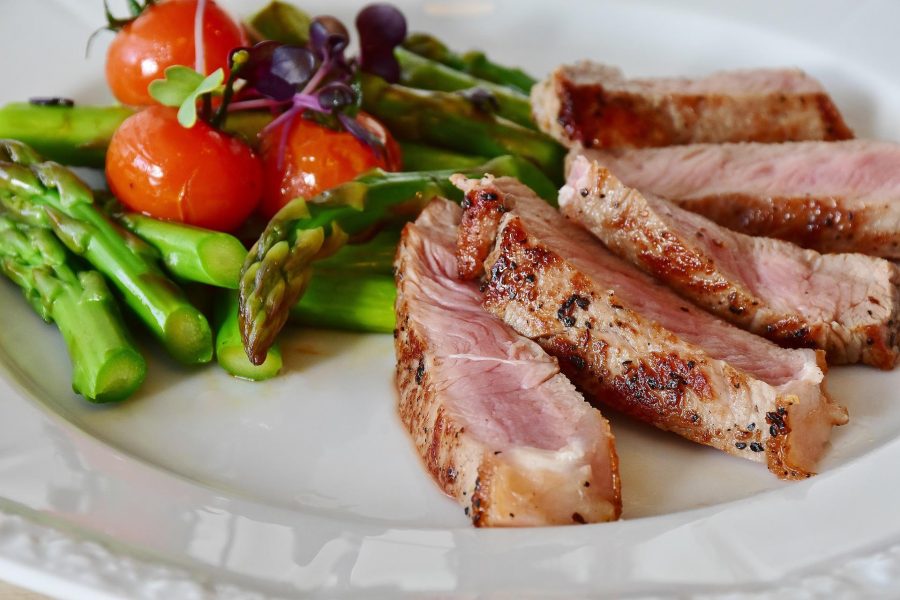
More Indian men eating non-veg food than before, finds survey
Data from the recently released NFHS-5, which was conducted in 2019-21, reveals that the proportion of men in the age group of 15-49 years, who have never eaten non-vegetarian, has seen a 5% drop from the previous survey

Globally, the consumption of meat is increasingly being viewed as a contributor to climate change. In India, however, more people seem to be consuming non-vegetarian food than before. Interestingly, the proportion of meat-eating Indian men has spiked in the past six years –from 2015-16 to 2019-21, the National Family Health Survey (NFHS)-5 has found.
Other titbits that emerge from the survey are that Indians love their eggs more and prefer it to ‘fish, chicken or meat’. They love to tuck into their pulses/beans, fruits, and green and leafy vegetables daily, weekly or occasionally, as much as they like dairy products including milk and curd. At the same time, a major proportion of men and women also love munching on fried food.
Also read: What’s halal meat? What’s Hindutva groups’ beef with it?
Data from the recently released NFHS-5, which was conducted in 2019-21, reveals that the proportion of men in the age of 15-49 years, who have never eaten non-vegetarian food was 16.6 per cent in 2019-21. The percentage of men who have not consumed ‘fish, chicken or meat’ (which constitutes non-vegetarian food in the survey) was higher—21.5 per cent – in the previous survey round—NFHS-4 done in 2015-16. That’s a clear 5-percentage-point drop.
Women lag behind
Women, however, seemed to be less inclined to eat non-vegetarian food. In the same age group (15-49), the proportion of women who have never consumed ‘fish, chicken or meat’ was at a higher 29.4 per cent than men in 2019-21. There is not much of a difference as well in the figures Indian women had notched up in 2015-16. It still hovered in the 29 per cent range at 29.9 per cent.
In short, a sizable population –83.4 per cent of men and 70.6 per cent of women in the 15-49 age group – eat non-vegetarian food daily, weekly or occasionally. The percentage of men and women consuming non-vegetarian food was 78.4 per cent and 70 per cent respectively in NHFS-4.
The percentage of people who consume meat on a weekly basis has also shot up to 57.3 per cent for men and 45.1 per cent for women in NHFS-5.
Also read: Sharpest fall in population growth rate has been among Muslims: NFHS-5 data
Men in Lakshadweep eat more meat, Rajasthan the lowest
Men who eat non-vegetarian food are highest in number in Lakshadweep (98.4 per cent) and lowest (14.1 per cent) in Rajasthan (despite the state’s signature meat dish laal maas!) in 2019-21. Along with Rajasthan, Haryana (13.4 per cent), Punjab (17 per cent), Gujarat (17.9 per cent) and Himachal Pradesh (21.1 per cent) account for the states at the bottom of this list. And along with Lakshadweep, Goa (93.8 per cent), Kerala (90.1 per cent) and Puducherry (89.9 per cent) lead in men consuming non-vegetarian food at least once a week.
Among religious groups, Christian men and women accounted for the highest consumption of non-vegetarian food at least once a week, followed by Hindus. Among Christians, 80 per cent of men and 78 per cent of women in the 15-49 age group consume non-vegetarian food at least once a week, while among Hindus, 52.5 per cent men and 40.7 per cent of women consume meat at least once a week.
Around 79.5 per cent of men and 70.2 per cent of women in the Muslim community have non-vegetarian food at least once a week. The percentage of men and women having meat in the Sikh community is 19.5 per cent and 7.9 per cent respectively while the same for Buddhist/Neo-Buddhists is 74.1 per cent and 62.2 per cent respectively.
Indians love their eggs
Around 84.7 per cent of men reported eating eggs daily, weekly or occasionally during 2019-21 — over 4 percentage points higher than the 80.3 per cent reported in 2015-16. Around 72 per cent of women eat eggs, up from 70.8 per cent in 2015-16.
It’s bad news for aerated manufacturers as data shows that the proportion of men and women consuming aerated drinks has come down over the years. In 2019-21, 86.4 per cent men and 84.3 per cent women reported consuming aerated drinks, down from 88.3 per cent for men and 83.5 per cent for women in the previous survey.
Also, 96.2 per cent of men and 94.2 per cent of women consumed milk and curd either daily, weekly or occasionally, while the proportion of those who ate fried food stood at 95.6 per cent for women and 92.6 per cent for men.
The fifth round of the NFHS was conducted in two phases between June 17, 2019, and April 30, 2021. It covered 707 districts drawn from 29 states and seven Union Territories.

